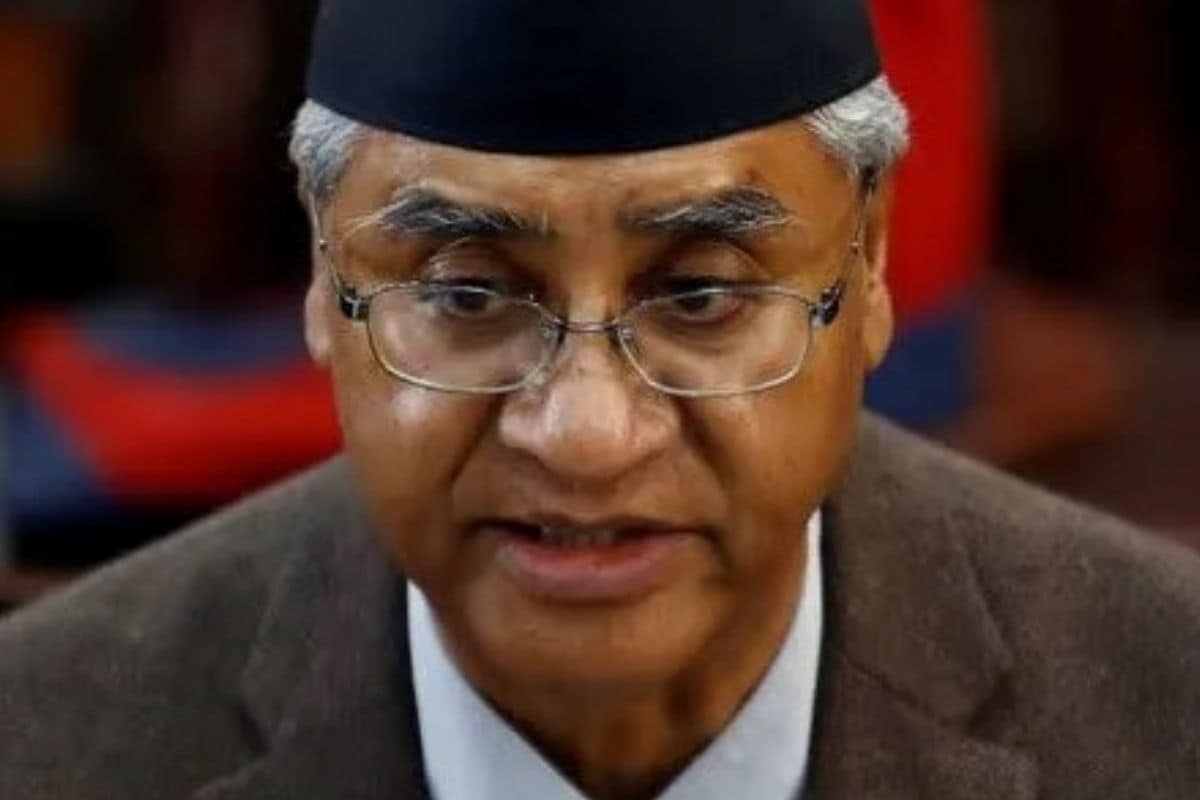Modi meets Nepal PM, Kuwait Crown Prince in New York
Prime Minister Narendra Modi met his Nepalese counterpart K P Sharma Oli on the sidelines of the 79th session of the UN General Assembly Sunday.
The development came a day after the Supreme Court overturned former Prime Minister K.P. Sharma Oli’s decision to dissolve Parliament and directed Bhandari to appoint Deuba as the Prime Minister.

Sher Bahadur Deuba
Nepal President Bidhya Devi Bhandari on Tuesday appointed Sher Bahadur Deuba, leader of the opposition Nepali Congress party, as the country’s new Prime Minister.
The development came a day after the Supreme Court overturned former Prime Minister K.P. Sharma Oli’s decision to dissolve Parliament and directed Bhandari to appoint Deuba as the Prime Minister.
Advertisement
Already appointed as the Prime Minister four times previously, Deuba, 69, will now take charge of the Himalayan nation for the fifth time.
Advertisement
He is leading an alliance of four parties — Nepali Congress, Nepal Communist Party (Maoist Center), Janata Samajbai Party, and Rastriya Janamorcha.
In an address to the nation on Tuesday, Oli said that he will abide by the Supreme Court verdict and is going to vacate the post, but he has refused to resign.
“I am leaving the post of Prime Minister due to the mandamus of the Supreme Court not by people’s verdict,” he said, adding: “I have the people’s mandate but leaving the office as per Supreme Court’s verdict.”
“I have left the post and I am not worried too because I have worked for the sake of Nepali people,” Oli said while also lambasting the Supreme Court’s verdict that “has overthrown him”.
Oli further claimed that the apex court has crossed its jurisdiction and decided over political matters.
Monday’s verdict of the Supreme Court’s constitutional bench “will have a long-term and negative impact on the multiparty parliamentary system”, he alleged.
Stating that he and his party will implement the order of the court, Oli insisted that it is sure to demolish the party system and multi-party democracy.
“The terms and language used in the verdict have alarmed all those who believe in a multi-party system. The order has violated the system of check and balance (of power between state organs).
“This is just a temporary joy. It’ll have a long-term impact,” Oli added.
Oli, who was appointed Prime Minister in February 2018, almost enjoyed a two-thirds majority but due to his high-handedness and poor-working style, he was criticized by his own party leaders.
In March, the Supreme Court also invalidated the unity between Oli’s Nepal Communist Party—UML and the Communist Party of Nepal (Maoist Center).
This decision not only divided the two communist parties but also put Oli in a minority.
The Maoist Center withdrew the support extended to Oli in May.
After the Maoists withdrew their support, Oli as per a constitutional provision went for a floor test.
He failed to win the vote of confidence after which he dissolved the House on May 21 and declared the early elections in November.
This step was challenged in the court.
Simultaneously Deuba also claimed his majority and filed a petition at the Supreme Court seeking his appointment as next Prime Minister as he enjoys the support of majority lawmakers.
Hearing Deuba’s petition, the Supreme Court on Monday issued a mandamus to the President Office to appoint him within Tuesday evening and restore the House.
Deuba, who is expected to form a small cabinet on Tuesday, is taking the oath of office in secrecy later in the evening.
(With IANS inputs)
Advertisement